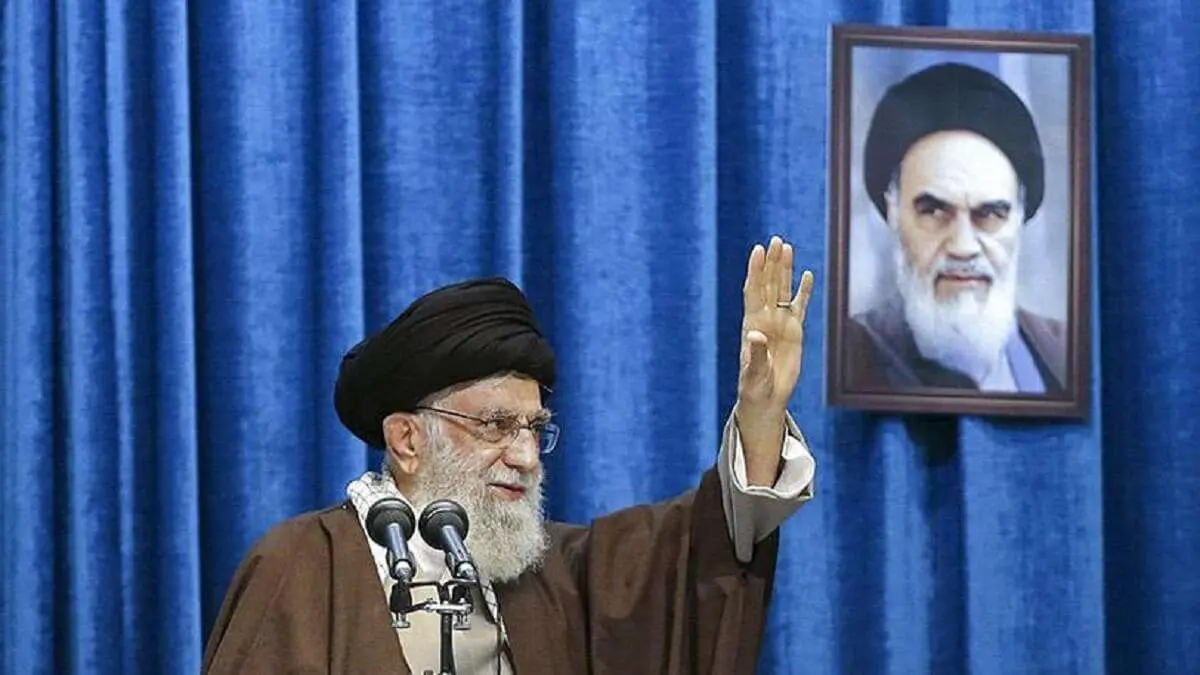Iran: "Khamenei is trying to stifle resistance"

In recent months, the Iranian regime has attacked women's schools in several Iranian cities with chemical weapons. For Hamid Enayat, a political scientist specialising in Iran, the aim of Ayatollah Ali Khamenei, the Supreme Leader of the Islamic Republic, is to intimidate women and girls in order to dissuade them from participating in the ongoing uprising.
The uprisings in Iran in recent years have developed into a large and powerful uprising in September 2022, which may decide the fate of this regime. Moreover, it has shown the weakness and fragility of this regime in the eyes of the world, giving it hope that it has no future.
The mullahs cannot block the uprising because society is on the verge of exploding, and we have only seen part of the eruption of this anger in the last six months. The regime born of medieval dogmas based on the oppression of women is no longer capable, after forty years of looting, pillaging and repression, of solving any of the people's problems, neither economic nor cultural. The people are not willing to tolerate the status quo. And the government is incapable of governing. Revolution is therefore inevitable. The National Resistance Network and the resistance units play an important role in the continuation of the uprising, as they are the backbone of this movement.
Since the beginning of the Iranian New Year (21 March 2023), Khamenei has put two parallel actions on the agenda of his repressive forces: on the one hand, he has launched a new round of repression, aiming to reimpose the mandatory wearing of the hijab, and on the other hand, he has launched a series of chemical attacks against girls' schools in several cities across the country.
The Iranian regime's actions in defence of the hijab have ultimately endangered it. An expert close to the regime noted the current danger: "Last year I said that we should expect a social protest in the form of a public uprising, you saw what happened in September of the same year, and now, once again, the groundwork has been laid for the next public uprising and it is now intensifying" (Khabar Online, 10 April).
As for the chemical attacks in both Saqqez and Shahinshahr, popular slogans such as "Death to the government of the girl-killers" served to alert the population to what was happening. Yet Khamenei is carrying out both actions simultaneously. Why? No doubt the Supreme Leader is well aware that these chemical attacks and the compulsory wearing of the hijab give a bad image, dangerous for the regime, but he accepts the risk under the current conditions, in order to achieve certain goals.
Who doesn't know that the uprising has entered a new phase? After spreading slogans calling for the death of the dictatorship, the uprising is now capable of overthrowing the Iranian regime by creating power in the street. However, Khamenei is trying to stifle resistance, resorting to the forced wearing of the hijab and chemical attacks, while poverty, high prices and inflation run rampant and thus the breeding ground for uprising and rebellion remains. Khamenei is incapable of destroying it. For any reform requires freedom, which a dictator cannot afford. With the chemical attacks on girls' schools he wants, on the one hand, to involve society in his concerns and, on the other, to give his repressive forces morale and reassurance that his regime is still in control.
On Tuesday 11 April 2023, as chemical attacks - affecting at least eight schools in Shahin-Shahr and Isfahan - escalated, Iranian opposition leader Maryam Rajavi declared: "Khamenei, in this month of Ramadan, with the spread of this crime to different cities, has opened a new page of shame and hypocrisy to prevent an uprising. What a futile effort, because the women, girls and young rebels have vowed to overthrow this inhuman regime, and it will happen.
Is it not time for Western governments to side with the Iranian people by fundamentally rethinking their policies towards Iran? The determination of Iranian society to achieve freedom and democracy will not be lost. The regime is not able to maintain its sovereignty in the face of the wave of uprisings.
The international community, including France, cannot treat the Iranian regime with the previous attitude, i.e. with a kind of appeasement. And settle for verbal condemnations. The international community must support the Iranian resistance for a secular and democratic government. Because maintaining an appeasing relationship with the regime has been against the interests of the Iranian people in recent years, but also against world peace and security which are threatened by this regime. Practical steps must be taken to solve this problem, such as singling out the Revolutionary Guards as the main perpetrators of all these atrocities, which the European Parliament has also supported, or ending the agreements with this regime and recognising the struggle of the rebellious youth against it.
By Hamid Enayat
Previously published in Marianne

